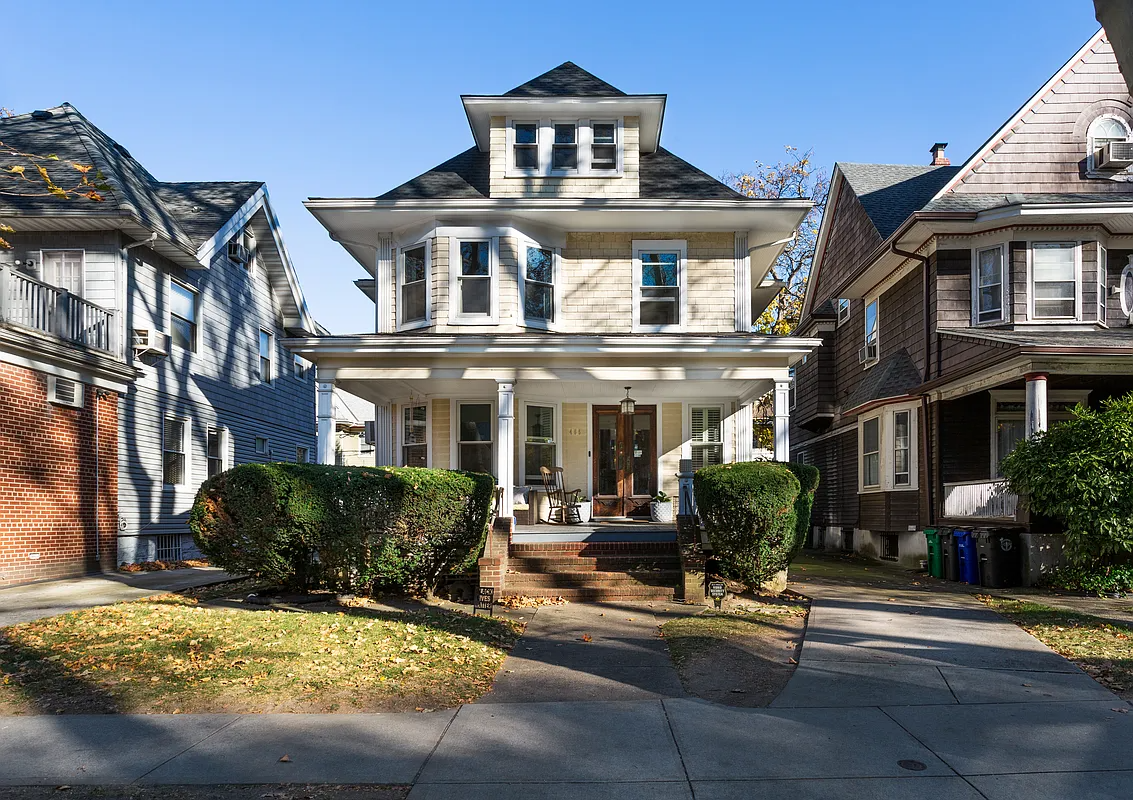Monday Question of the Day (Brownstoner Lite)
We’re on vacation this week, so you’ll have to get by on Brownstoner Lite this week. To help amuse yourselves, we’re going to throw out a discussion topic every day. Have fun. Question: In a shocking turn of events last week, a reader stood up and identified himself as, gasp, a flipper and proud of…
We’re on vacation this week, so you’ll have to get by on Brownstoner Lite this week. To help amuse yourselves, we’re going to throw out a discussion topic every day. Have fun.
Question: In a shocking turn of events last week, a reader stood up and identified himself as, gasp, a flipper and proud of it. Which raises the question of why the term flipper has acquired such negative connotations. The argument could be made that they are either 1) arbitrageurs or 2) home improvers. We suspect that it’s because people are 1) jealous if the flipper made a bundle of money for doing nothing or 2) resentful because the flipper did a crappy, corner-cutting renovation. How do you feel about flippers?









The other thought I want to throw into this discussion is a note about the extra froth this housing market has because of the poor performance of the stock market. People used to throw cash into the market, which is a whole lot different in its social effects than real estate.
Hi Ben
I don’t disagree completely. You’ll notice I didn’t paint horns on anybody.
In response I’ll add that – especially in this tight market – profit driven real estate investment makes things so much worse for people that want to buy and live in a community. I was lucky to buy more than 10 years ago. If someone with a little more capital to burn had scooped up my place, I wouldn’t be here renovating and investing in a stable community. Plenty of people want to do the same — I don’t think real estate speculators in brownstone brooklyn are filling some sort of organic need to clean up the housing stock as you suggest.
Most of my friends who were ready to buy and live here just one or two years after me couldn’t touch my neighborhood, and that’s a real shame.
So… I do see the flipper issue as a theft of our community resources.
LG, while I understand your point, I do think that some (not all) flippers, btw another term for flipper is wholesaler, do bring a valuable service.
Taking a run down problem property and bringing it up to retail standards for sale is providing a service in this tight market. They help bring more ready to move in properties to the market that would otherwise either not be sold or would require significant renovation. While there are some that can handle this type of renovation, many cannot.
They also provide a valuable service to the previous owner as they offer quick cash to someone who needs to sell but doesn’t have the time and resources to renovate, list with a broker, and go through the standard drawn out closing.
So yes, there are sleazballs out there who take advantage of people in their quest to make a buck but there are many others who are providing useful services and getting compensated for their work.
A guy I knew used to buy old stone houses upstate, live in them a few years while he worked on them, then sell them for alot more than he bought them for. He did good restoration work. This was a great thing, everybody was happy. This is not a flipper as I understand it. This is a very old-fashioned way of operating in an economy where you add value to the thing you do, and profit as a result.
Note to one of the freemarket cornerstoner Anonymouses – a shopkeeper gets the wholesale item and makes it available to you where and when you want it. A service is provided in this transaction – i.e. you don’t have to get yourself to Hunts Point if you want a soda on the way home from work. The flipper thing is a really different model — more like people who buy up website domains in other people’s names and sit on them until they can sell them at a high cost. Or corporate raiders that buy a business to strip it of assets….it’s destructive to our economy. (Obviously I’m going for shorthand here.)
As Juds Son put it, Hang Them At Dawn!
My old boss could buy and sell, or flip, a property in the same day, often driving from one closing to the other. One time he bought three properties and flipped one for more than he paid for all three. He talked me into buying my brownstone for $230 grand… I even talked them down $15 grand. He is also a great poker player.
i think flippers are either smug smart-alecks or desperate greedy people. my experience with flippers has been difficult since they want everything for nothing, lie to get it and then turn the property around for a ridiculous amount and don’t care who they walk over to do this!
Anon again here who wrote about Park Slope flips. The houses I’m commenting on are two houses I saw before the developer bought and relisted the properties. They had beautiful old moldings and floors that had been torn out or covered up. It’s a shame and I know what they did because I saw the houses before and after.
If somebody rips out old details to renovate on the cheap, that’s a shame. However, just because you’ve seen flip jobs that lacked detail doesn’t mean it was the flippers that did it.
When I was looking at houses to buy, most of the houses I saw in my price range were houses that had been held in one family for decades — a grandmother had just died, etc. And most were long since stripped of most detail. Moldings, pocket doors and mantels taken out and fireplaces walled over. Lots of stucco and carpet and wood paneling and linoleum. All done by the people who had lived there for years, because they couldn’t afford to preserve details or didn’t care to or didn’t see the value in it. I saw people do worse things to their own homes than in the obvious, ugly flip jobs I also looked at.
From what I know just anecdotally, those “estate sales” are often the kind of houses bought up by flippers. So I’m not sure your typical Brooklyn flipper has much detail to destroy to being with — not to say it doesn’t happen.
What makes me sad about the Park Slope houses I’ve seen that were renovated by flippers is that they very often seem to destroy old details because it’s cheaper to put in more modern touches (i.e. hideous new floors) than it is to restore the original work to a quality good enough to sell. That’s the moral outrage to me, not that they’re trying to make money.